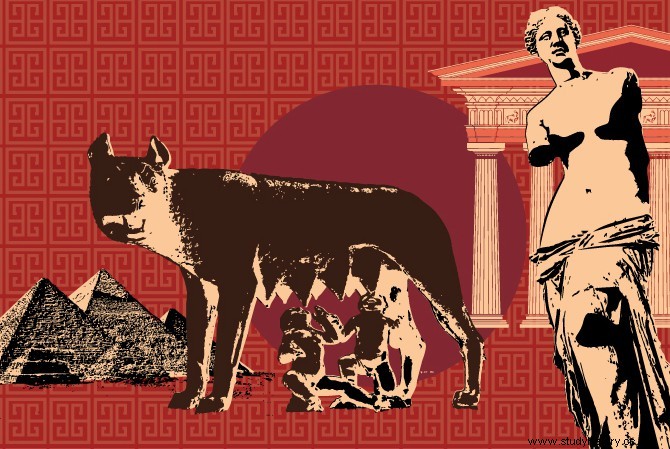
Formatted in the 320s-380s, the Acts of Pilate chronicles the death and resurrection of Christ and functions as documentary evidence of historicity, contemporaneous with the events. They are also known as the Gospel of Nicodemus (the one who got Pilate to bury Jesus). The account of the trial aims to exonerate Pilate of the death of Jesus, the responsibility for which is attributed to the Jews.
Pilate invites Jesus to appear before him. Jesus is summoned as a king, much to the chagrin of the Jews. Pilate's messenger prostrates himself before him, and the standards are bowed at his entrance. It is a reminder of the triumphal procession of Palm Sunday and a veiled allusion to the episode, considered anti-Jewish, of the signs that Pilate had tried to introduce in Jerusalem.
Pilate proclaims the innocence of Jesus. Convinced by the miracles of benevolence of Jesus, the prefect tries to convince 12 pious Jews:"If he is accused of breaking the Sabbath, then he [Jesus] has done a good work since he heals the ill. There is therefore no reason to condemn him to death […]. I find no fault in this man. »
The message of Procla, wife of Pilate. After Pilate continues the investigation of the case on the kingship of Jesus, his threats against the Temple and the announcement of his resurrection, a messenger tells him of the fear that his wife has for Jesus after a dream. Unlike the Gospel of Matthew, his name is mentioned; she is a saint in the East.
The intervention of Nicodemus. It opens the debate on the miracles of Jesus in terms taken from the discourse of Rabbi Gamaliel in the Acts of the Apostles, a canonical writing. He produces as witnesses a paralytic, a man blind from birth, a hunchback, a leper and the haemorrhoid of the Gospels. He insists on the resurrection of Lazarus.
Pilate promulgates his sentence. Despite three interventions by Pilate, the Jews refuse Jesus as king, because he received the “gifts of the Magi”. Pilate washes his hands as a sign of "innocence" to have to shed "the blood of this good man". He condemns Jesus to a beating, a parade of derision and crucifixion.
